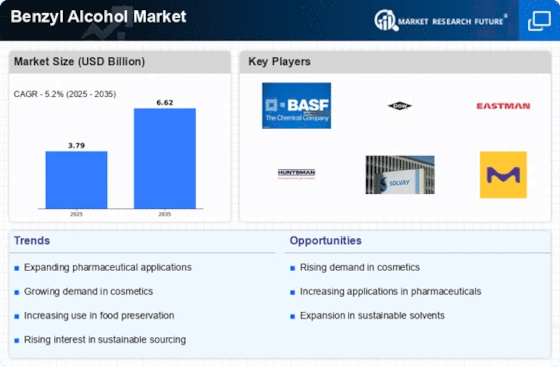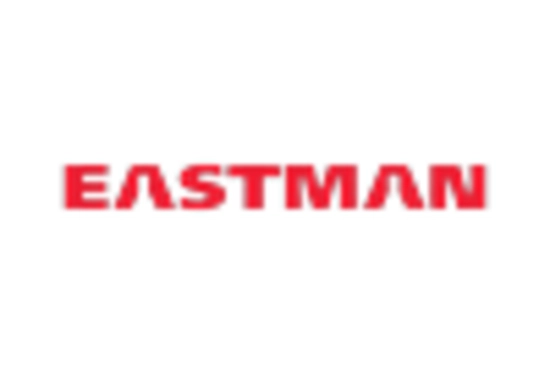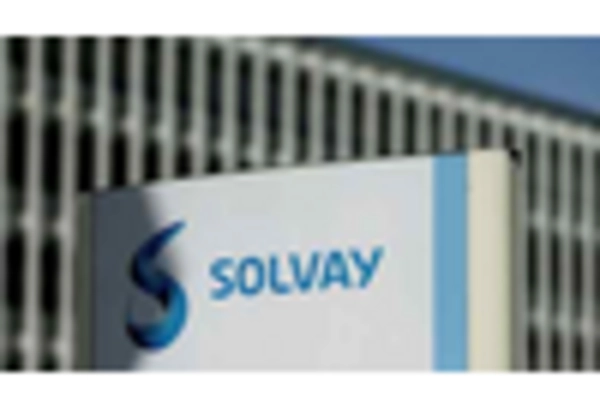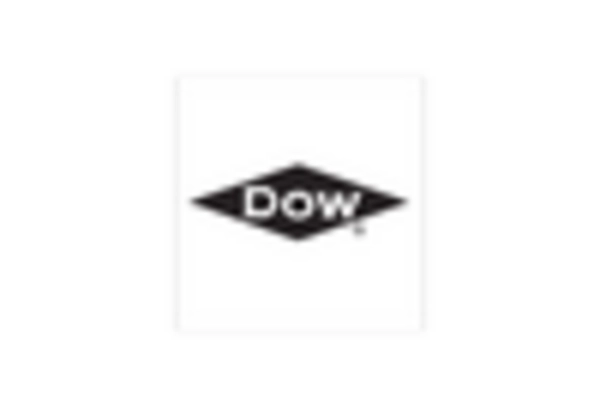Market Analysis
In-depth Analysis of Benzyl Alcohol Market Industry Landscape
The market dynamics of benzyl alcohol are influenced by various factors that impact its demand, supply, and overall growth. Benzyl alcohol is a versatile compound used in numerous industries, including pharmaceuticals, personal care products, paints and coatings, and chemical synthesis. Market dynamics in this industry are driven by changes in end-user demand, regulatory policies, technological advancements, and competitive pressures.
One of the primary drivers of market dynamics in the benzyl alcohol industry is its widespread use in pharmaceutical and personal care products. Benzyl alcohol serves as a solvent, preservative, and fragrance ingredient in various pharmaceutical formulations, including injectable medications, topical creams, and oral solutions. In the personal care industry, it is used in skincare products, hair care products, perfumes, and cosmetics due to its antimicrobial properties and pleasant aroma. The growing demand for pharmaceuticals and personal care products, driven by factors such as population growth, aging demographics, and increasing consumer awareness of health and wellness, fuels the demand for benzyl alcohol, contributing to market growth.
Technological advancements play a significant role in shaping the dynamics of the benzyl alcohol market. Innovations in production processes, purification techniques, and synthesis methods have led to improvements in product quality, purity, and cost-effectiveness. Manufacturers are investing in research and development to develop more efficient and sustainable methods of benzyl alcohol production, such as green chemistry approaches or biotechnological processes. Additionally, advancements in downstream applications, such as drug delivery systems or fragrance encapsulation technologies, create new opportunities for benzyl alcohol utilization and market expansion.
Furthermore, regulatory factors influence the dynamics of the benzyl alcohol market, particularly in terms of safety standards, purity requirements, and labeling regulations. Regulatory agencies impose strict guidelines on the use and handling of benzyl alcohol in pharmaceuticals, personal care products, and other applications to ensure product safety and consumer protection. Compliance with these regulations is essential for manufacturers, formulators, and end-users to maintain legal compliance, prevent adverse health effects, and safeguard brand reputation. Moreover, evolving regulatory requirements, such as restrictions on certain chemical ingredients or limits on volatile organic compound emissions, may drive changes in product formulations or manufacturing processes in the benzyl alcohol industry.
Competitive pressures also shape the dynamics of the benzyl alcohol market, with numerous players vying for market share through product differentiation, pricing strategies, and marketing initiatives. The market is characterized by the presence of both large multinational corporations and smaller regional players offering benzyl alcohol products and services. Intense competition encourages innovation and drives companies to develop value-added solutions, such as high-purity grades, custom formulations, or specialty derivatives tailored to specific customer needs. Additionally, strategic partnerships, collaborations, and acquisitions enable companies to expand their market presence, access new markets, and leverage synergies to gain a competitive edge.
Economic factors also influence the dynamics of the benzyl alcohol market, including GDP growth, industrial production, and consumer spending. Economic expansion drives demand for benzyl alcohol in various end-user industries, such as pharmaceuticals, personal care, paints, and coatings, as companies ramp up production to meet rising consumer demand. Additionally, economic downturns or fluctuations may impact industrial activity, consumer purchasing power, and market demand for benzyl alcohol and related products.


















Leave a Comment